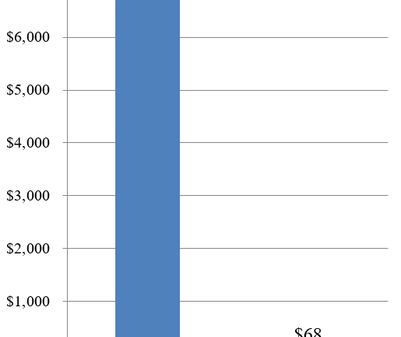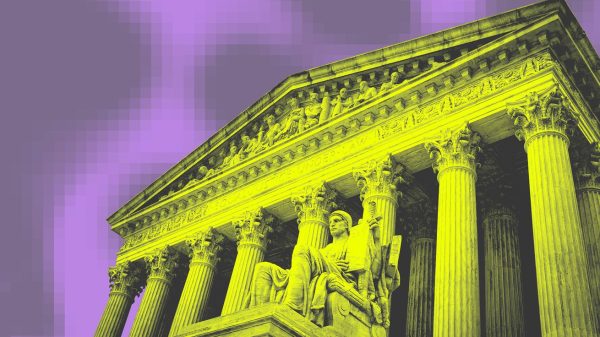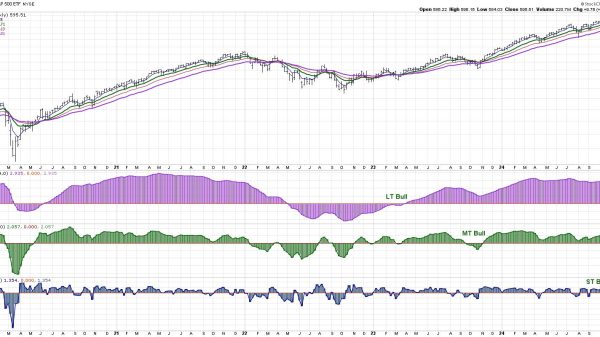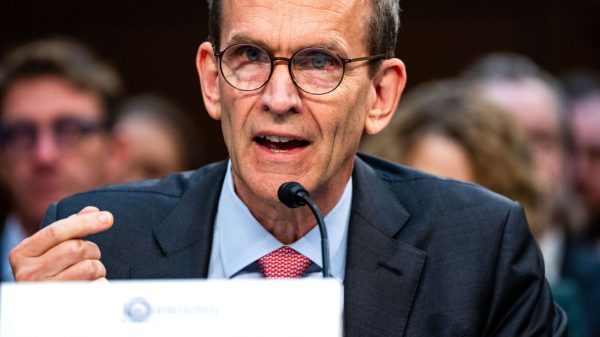At his rally in Madison Square Garden on Sunday, Donald Trump offered an aside to Speaker Mike Johnson about a “little secret” concerning the election and the House of Representatives. “[W]e can take the Senate pretty easily. And I think with our little secret, we’re going to do really well with the House, right?” Trump said to Johnson. “Our little secret is having a big impact. He and I have a secret. We’ll tell you what it is when the race is over.”
Many took this as a nod to possible efforts to obstruct the joint session where electoral votes are counted on January 6. It’s not entirely clear what Trump might have meant, and Johnson has been evasive about whether he would seek to lead, as he did among House members four years ago, with ill-founded objections to a possible Democratic victory.
But because the topic is attracting concern, it’s worth putting to rest the idea that the Speaker has any procedural tools to change the outcome of the presidential election.
The Speaker’s role during the electoral count is, in fact, nearly non-existent. There are no lawful mechanisms for the Speaker to derail the joint session of Congress without the backing of concurrent majorities in both the House and the Senate. The job of the Speaker is much more constrained here than their usual authority over the House.
To start, the statutory rules in the Electoral Count Reform Act of 2022 (ECRA) are in place as the default unless both chambers concur in any deviation by means of a concurrent resolution. Normally, both chambers also adopt a concurrent resolution simply reiterating the statutory rules. But the statute, which directs that both chambers convene in joint session in the House chamber at 1 p.m. on January 6, and lays out detailed rules for what then follows, is valid and binding of its own force.
It has, after all, already been adopted by both houses and in many respects it simply reiterates what is already commanded by the Constitution. While Congress could by its internal rule-making power adopt some theoretical changes, should unexpected circumstances arise, doing so for the joint session would require the House and Senate to agree. The Speaker alone has no such power, and neither does the House alone.
Nor does the Speaker preside over the joint session, a task falling to the vice president as President of the Senate, who happens to be Kamala Harris. (She would not be the first VP to preside over certification of her own victory or defeat). The President of the Senate has no power to make decisions about the electoral count itself, about rejecting or accepting votes, but as presiding officer she will still have the “power to preserve order” as specified in 3 USC § 18.
Though the electoral count might take place in the House chamber, the space is not, for that time and purpose, the House’s alone or the Speaker’s to control, as it would be in the course of normal business. It is under the control of Congress as a whole with the President of the Senate tasked with maintaining, if need be, literal physical control of the room, directing the sergeants at arms and however much backup is necessary to that end.
The only scenario in which the Speaker retakes the gavel is if an objection to a state’s electoral votes is made by at least one-fifth of each chamber, or at least 87 representatives and 20 senators. In that case, the Senate will withdraw to its side of the Capitol and both chambers will separately consider and vote on the objection, with the agreement of both chambers required to sustain it.
This period of debate and vote is limited by ECRA to no more than two hours. During that time, the Speaker (or as always, another member they designate) would preside over the House debate but not have any lawful power to postpone the reconvening of the joint session after those two hours expire.
One of the more outlandish ideas some have suggested is that Speaker Johnson could, when the newly elected House convenes on January 3, refuse to seat some number of Democratic members-elect—even, potentially, if Democrats have regained the majority at the election.
However, the speakership does not automatically carry over into the new Congress. Rather the position is initially vacant unless and until the members-elect choose a Speaker in the process of “organizing” the House on the first day of their terms. After the election of a Speaker, there is a procedure for objections to a member-elect’s qualifications to be seated, with the rest of the House excluding that member then voting on the question.
But such objections made on a blatantly partisan basis could quickly escalate into a rather absurd tit-for-tat spiral. Baseless objections to seating Democratic members could be met in-kind with retaliatory objections to seating Republicans. The whole thing would spiral into a farcical deadlock, inviting almost philosophical debates about who “the House” really is on January 3. In any event, the Speaker alone does not decide, having no individual power to simply refuse to let members take their oaths.
More substantively, such a lawless purge of Congress on spurious grounds would not be constitutional. At that point, the rump “House” would only be destroying its own constitutional legitimacy, rather than making a feasible play for control of the White House. While it would be a grave constitutional crisis, it is not one the putative Speaker, with a dubious claim to that office under the circumstances, would be in a position to win.
Any attempt by the Speaker of the House to subvert the electoral count might observe a hollow pretense of following lawful procedures, but it would not be lawful. Hopefully, we will not face such a senseless confrontation. And it’s worth emphasizing these are extreme worst-case scenarios.
Again, who knows what Trump was really talking about, or what Johnson might have in mind in the event Trump loses the election. It is very unlikely that the needed majorities of both the House and Senate would go along with this hypothetical coup attempt, even in the event Republicans have narrow majorities.
But if such a thing was nevertheless attempted by the Speaker acting unilaterally, the legally and constitutionally required course would be for other actors and institutions—including the members of the House, the Senate, the vice president, the courts, and the executive branch—to treat such actions as null and void.
There is no one neat trick or magic words the Speaker can use to reverse the outcome of a presidential election, forcing everyone else to accept an illegitimate power grab. The law and the Constitution remain the law and the Constitution even in the face of a rogue officer’s attempt to violate them.


























